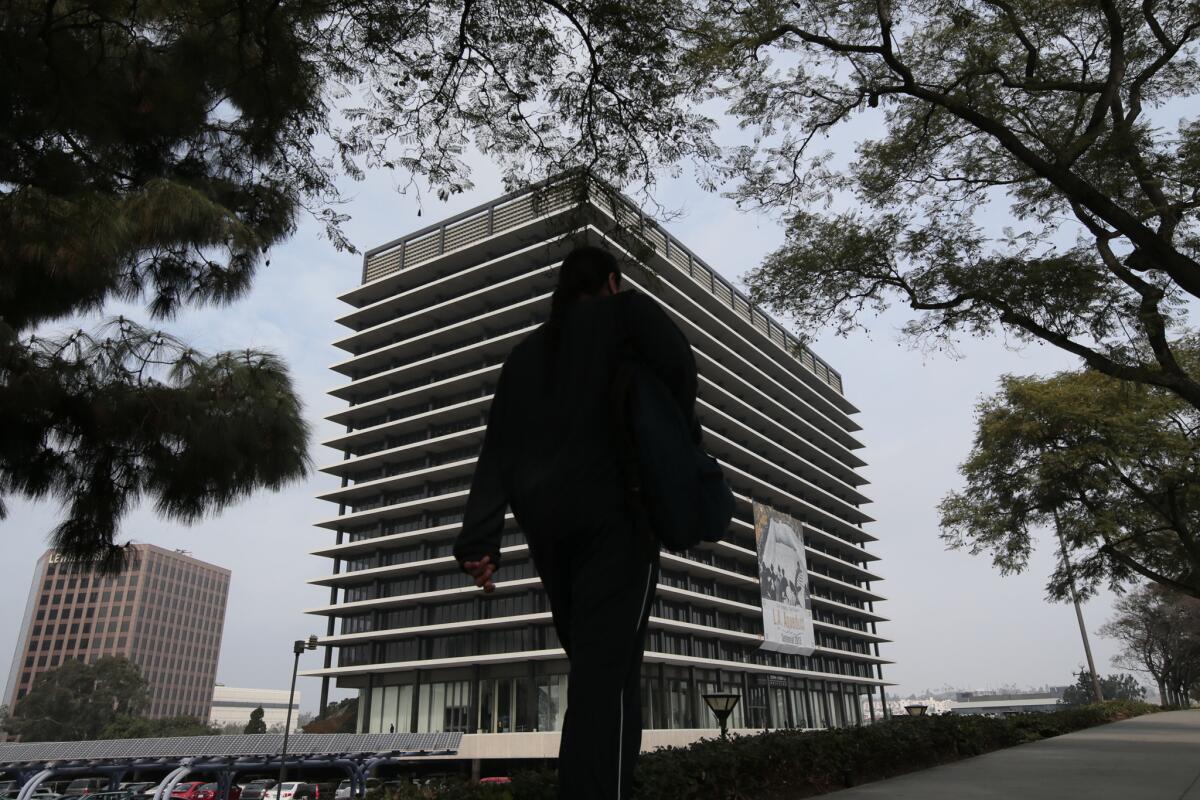DWP billing system errors add $245 million to uncollected debt

- Share via
The Los Angeles Department of Water and Power failed to collect more than $245 million in consumer payments due to the botched rollout of a new billing system, a state audit has found.
Before the system went live in September 2013, the DWP carried about $436 million in uncollected debt against annual ratepayer revenues of about $5.6 billion. But the billing problem increased the debt to $681 million, according to the review released Tuesday by the California state auditor.
The shortfall includes residential and commercial billings.
Utility spokesman Joseph Ramallo said some of the money will probably never be recovered, although it’s too early to know how much. Overall, the DWP’s finances remain sound, he said.
“Many of our customers with past-due accounts are now on payment plans and we continue our collection activities,” Ramallo said.
Shortly after the new system went live, confused ratepayers flooded DWP customer service telephone lines with complaints about delayed or inaccurate water and electricity charges. One woman complained to the City Council that she was charged 40 times what she usually had to pay and saw her bank automatic payment account suddenly overdrawn. As officials diverted the workforce to answering phone calls and issuing corrected bills, collections fell further behind, the state report found.
The audit, requested a year ago by former state Assemblyman Raul Bocanegra (D-Pacoima), in some ways echoed earlier analyses of the billing debacle in finding that DWP managers ignored warnings that the system wasn’t ready to go live.
The problems occurred even though DWP officials spent three years testing the computer system so it could provide billing and services to 3.8 million utility customers. It replaced a 40-year-old system.
The state audit found that system implementation costs climbed to more than $181 million over time from an initial $87 million. But the now overdue payments that potentially will not be collected represent a hidden cost.
Typically, the DWP and other utilities write off debt that is more than a year old because it’s too hard to collect, said Margarita Fernandez, a spokeswoman for the state auditor. “People may have moved by then.”
Although they knew about some problems before the launch, DWP officials chose to go forward anyway. The utility’s “poor decision-making and poor communications with its [appointed governing] board … may unnecessarily cost it millions of dollars from unpaid customer bills — costs that it will ultimately need to either absorb or pass on to its customers in the form of rate increases,” the audit said.
Fred Pickel, the city’s independent ratepayer advocate, criticized the state audit as “incomplete” but declined to say where the report fell short. He asked the public not to make a “rush to judgment,’’ saying the city’s office of public accountability would issue its own report in coming weeks.
“We will look at things that need to be addressed,” he said, noting that the DWP also intends to update accounting, payroll and other outdated technology systems. “We want to make sure they occur in a more orderly fashion.”
DWP officials, in a response to the audit, said they agreed with a recommendation that the DWP’s governing board should form a committee to oversee significant technology projects and to develop standards for managers to report when projects go over budget or increase in scope.
But the board said it disagreed that it was misled by DWP managers, blaming instead PricewaterhouseCoopers, the vendor hired to help launch the new billing system.
City Atty. Mike Feuer last week filed a lawsuit alleging that PricewaterhouseCoopers intentionally misled DWP managers about its ability to implement a software program for a system as large as the DWP. The lawsuit alleges that the city lost at least $88 million in commercial billings.
The global accounting firm responded that the DWP had signed off on the work and paid for it. A company executive suggested that the DWP was trying to make the vendor a scapegoat.
catherine.saillant@latimes.com
Follow @csaillant2 for more news about DWP billing problems.
More to Read
Sign up for Essential California
The most important California stories and recommendations in your inbox every morning.
You may occasionally receive promotional content from the Los Angeles Times.














